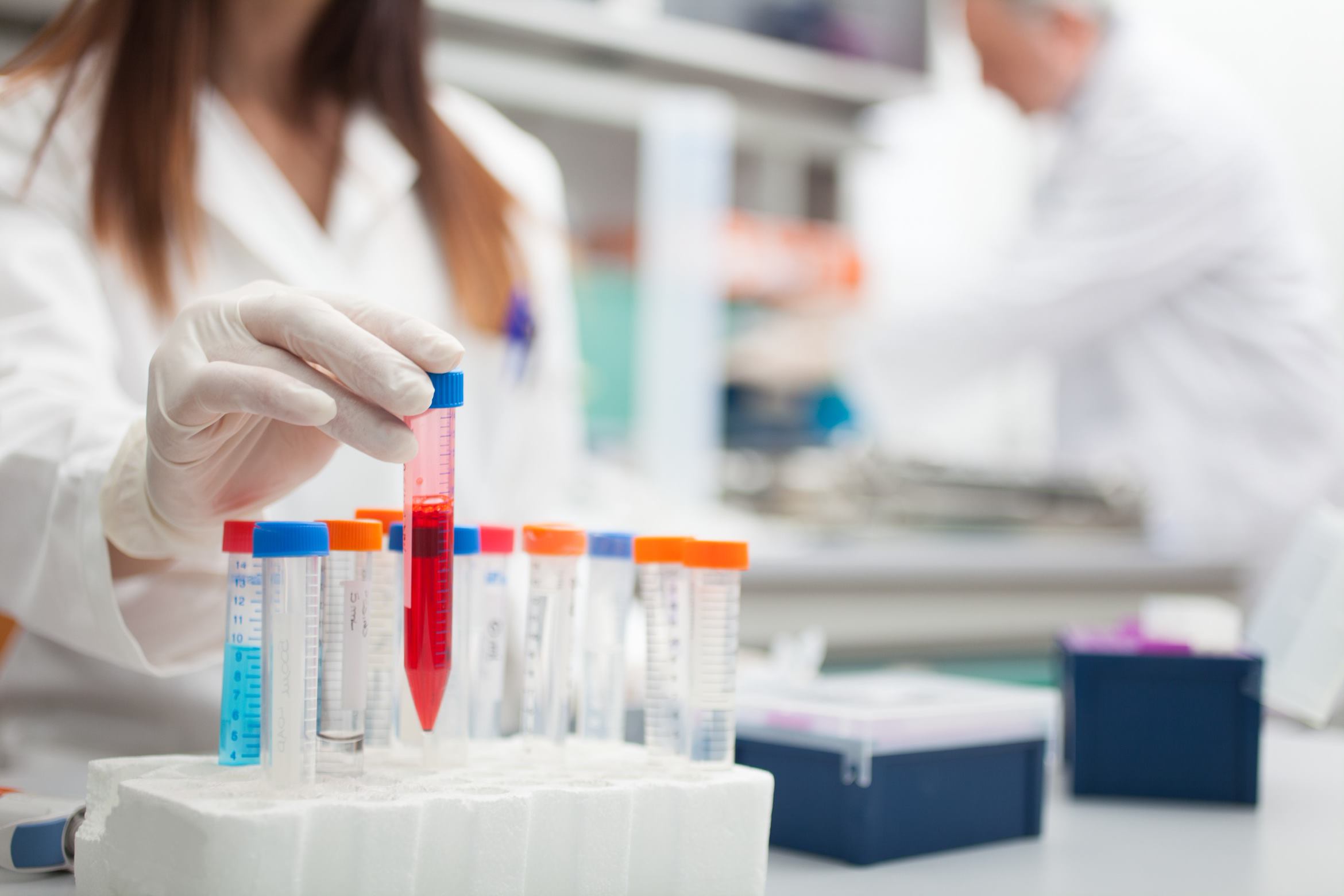What are Clinical Trials?
Clinical trials are research studies that involve people. It is through clinical trials that we find the right treatment, drug, and dose for medical conditions. We may also find out about other helpful information such as side effects.
When you become a volunteer in a Clinical Trial, you partner with the research team. Through this partnership, your feedback (verbal and physical) provides doctors and researchers with needed information to help determine if a product can move to the next step towards becoming an approved drug or device to treat a disease or condition.


Why are Clinical Trials Important?
It is through clinical trials that new medications, devices, vaccines, treatments, and even new or improved ways of doing surgical procedures, are studied. Researchers must prove to the Regulatory Authority (in the USA, it is the Food and Drug Administration (FDA)), that the product being tested in a Clinical Trial is safe, effective and that it works as claimed.
Components of a Clinical Trial
Step 1: Pre-Screen
If you contact a research facility about a Clinical Trial, or if your physician asks you about your interest in a research trial available in their office, a Pre-Screen conversation will occur to provide you with a brief overview of the research trial.
Step 2: Informed Consent
If you decide are interested in participating in a clinical trial, the next step is Consent. Through the Informed Consent discussion, the research site provides information about your rights...
Step 3: Screening Visit
Each clinical trial will include Inclusion and Exclusion criteria. These are lists of characteristics a volunteer must have in order to participate. These criteria will be discussed with...
Step 4: Enrollment
If all Inclusion and Exclusion Criteria are met, you will be scheduled for an Enrollment or Randomization Visit.
During this visit, you will receive the research study medication or device and other research study related supplies.
Step 5: Study Visit
During the study visits, you will return to the research center, or in some cases, you will answer questions over the phone.
Study Completion
Once all study visits are finished, a final Completion Visit is performed. This will conclude your participation in the research trial.
What Do I Need To Know About Clinical Trials?
There are many organizations, regulatory bodies, committees, and other people who make sure trials are conducted correctly and safely.
- Food and Drug Administration (FDA)
- Institutional Review Boards (IRBs)
- Investigators
- Clinical Research Associates (CRA)
- Safety Committees
- Pharmaceutical Company/Study Sponsors
“FDA makes sure medical treatments are safe and effective for people to use. We do not develop new therapies or conduct clinical trials. Rather, we oversee the people who do. FDA staff meet with researchers and perform inspections of clinical trial study sites to protect the rights of patients and to verify the quality and integrity of the data.” – FDA.gov
FDA United States code, title 21
-
-
- The Food and Drugs Act was established in 1906 when Theodore Roosevelt was President of the United States. Since that time, over 200 laws that directly correlate with the health and welfare of all people in the US have been created. These laws cover food, drugs, blood products, vaccines, medical tissues, medical devices, and cosmetics.
- The FDA acknowledges that the laws of the United States are organized by subject into the United States Code of Federal Regulations and that the Code is maintained by the Office of the Law Revision Counsel in the United States House of Representatives.
- Laws that are specific to Clinical Research are found under Title 21 (shortened list):
- 21CFR50: Protection of Human Subjects
- 21CFR54: Financial Disclosure by clinical Physicians
- 21CFR56: Institutional Review Boards (IRBs)
- 21CFR320: Generic Drugs
- 21CFR330: Over the Counter Drugs
-
Great question! There are a number of parties watching and they each play their own role.
The FDA
- FDA: The FDA oversees those who conduct clinical trials to ensure studies are being conducted according to the Code of Federal Regulation, ensuing the sites are protecting the rights of the study volunteers, and verifying the quality of the research study data. This is often achieved by conducting audits at research sites and pharmaceutical companies.
- Institutional Review Board (IRB): An IRB is a third-party committee required by Federal Regulations to protect the rights and welfare of clinical trial volunteers, by ensuring each clinical trial is ethical and scientifically valid.
Principal Investigator (PI)
- Principal Investigator (PI): The PI is the individual (perhaps your medical doctor) that is ultimately responsible for the overall clinical trial at his or her research facility. They are responsible to ensure compliance with all required regulations and laws that are affiliated with research. Failure to comply can result in fines and criminal charges.
- Clinical Research Associate (CRA): A CRA is an individual who visits research sites to ensure clinical trial volunteers’ rights, safety, and well being are being protected. This is achieved through ensuring data integrity by reviewing the clinical research work provided by the research site.
Study Sponsor and Safety Committee
- Pharmaceutical Company/Study Sponsor: Sponsors are held accountable by the FDA as well. Sponsors are responsible for selecting qualified PIs and CRAs. They must oversee the progress of the clinical trial and discontinue any trial that poses an unreasonable or significant risk to study volunteers. Sponsors must ensure compliance with regulations and cooperate with the FDA or other regulatory authorities.
- Safety Committee: These committees are a third party responsible for the safety, integrity, and validity of clinical trials. This committee includes individuals with pertinent expertise in the area of research. They advise the sponsor if the research trial can continue, based on the safety data reviewed (e.g., reported adverse events/side effects, lab results, etc.). Moreover, the committee reviews the study data to determine if the trial shows scientific merit and validity (e.g., is the investigational product effective?).
Clinical trials progress through phases. If the drug or treatment is successful in one phase it can move on to the next.
- Phase I – Dose-ranging on healthy volunteers
- Phase II – Testing drug on patients who have the condition it is meant to treat
- Phase III – Testing drug on patients who have the condition it is meant to treat
Phase I
- The purpose of the Phase I trial is to confirm the safety of the investigational product (meaning the drug has not been approved by the FDA).
- Phase I centers consent a small number of healthy volunteers (usually less than 100 volunteers). Healthy volunteers are individuals that do not have any outstanding medical conditions.
- There are, however, some phase I trials that are conducted with individuals that do have the disease under study (ex: cancer research trials).
- These trials usually last for a few months.
Phase II
- In Phase II clinical trials, the volunteers have the disease or condition for which the investigational product is being developed.
- The purpose of this phase is to further identify side effects and to see if the investigational product works (efficacy).
- The number of volunteers for Phase II is increased to the hundreds. These trials usually last anywhere from a few months to 2-3 years.
Phase III
- Phase III clinical trials are designed to confirm if the investigational product is beneficial.
- Because a larger number of volunteers are enrolled in Phase III clinical trials (hundreds to thousands of volunteers), identification of side effect trending is possible as well as long term effects.
- Phase III clinical trials usually last for 1 to 4 years.
Diversity in clinical trials is needed to help scientists learn more about how certain medications work best for all groups of people. Even though certain races and ethnicities have a higher ratio of some diseases like hypertension, diabetes, kidney failure, hepatitis B, or tuberculosis, they are underrepresented in clinical trials. People of different ages, races, and ethnicities may react differently to certain medical products. That’s why diversity in clinical research is important. The more diverse the volunteers, the better researchers can understand the differences in how well medications work across racial and ethnic demographics.
